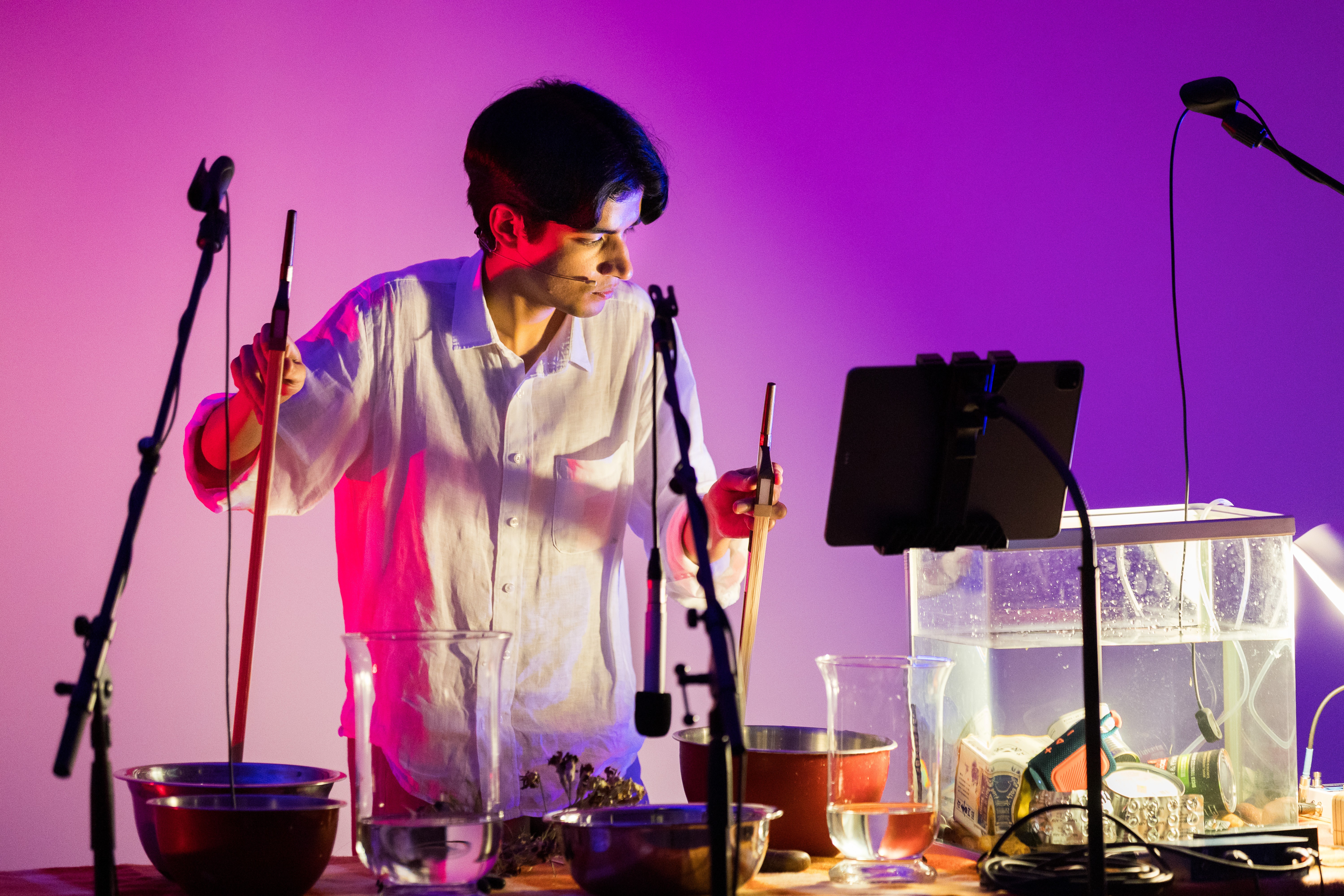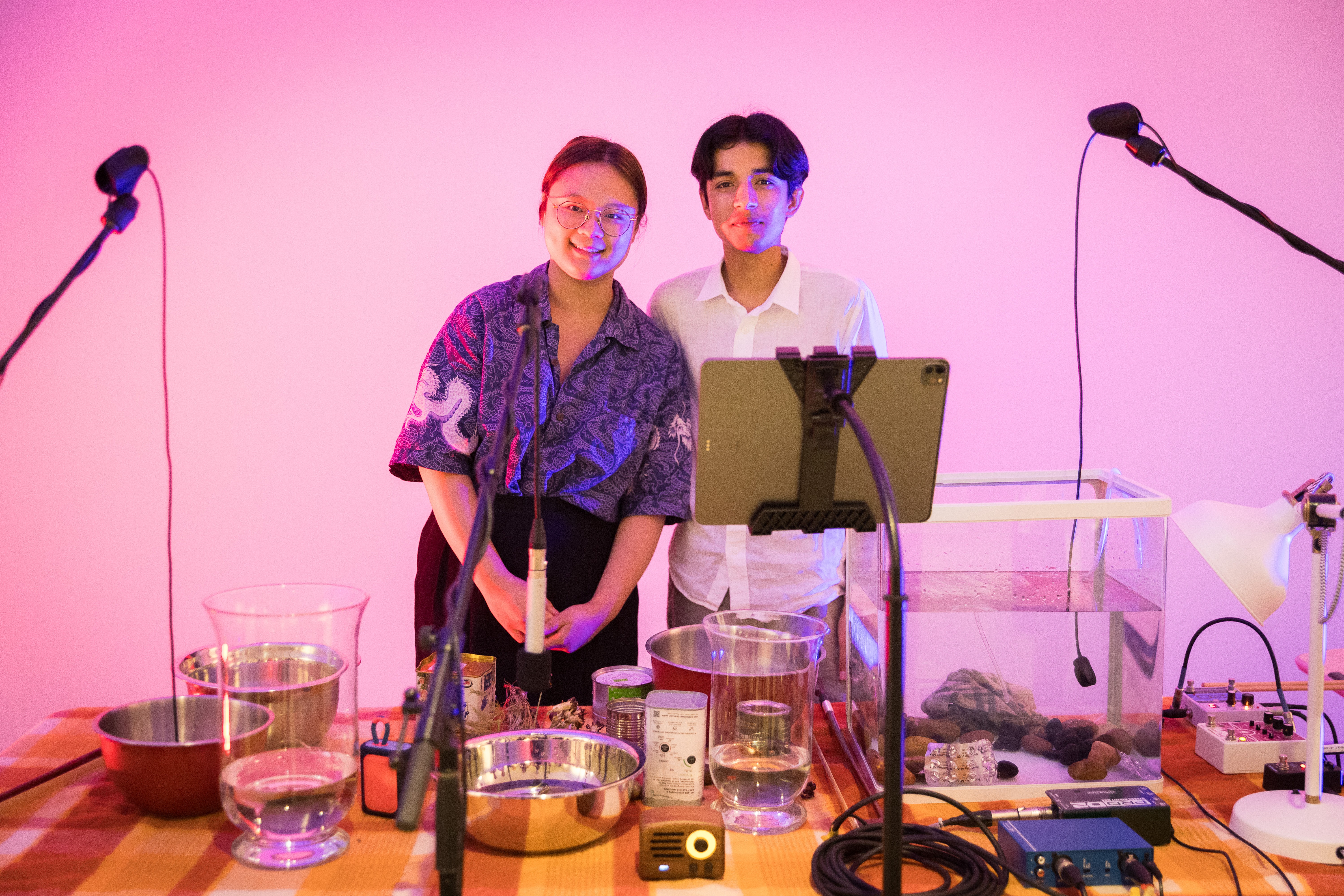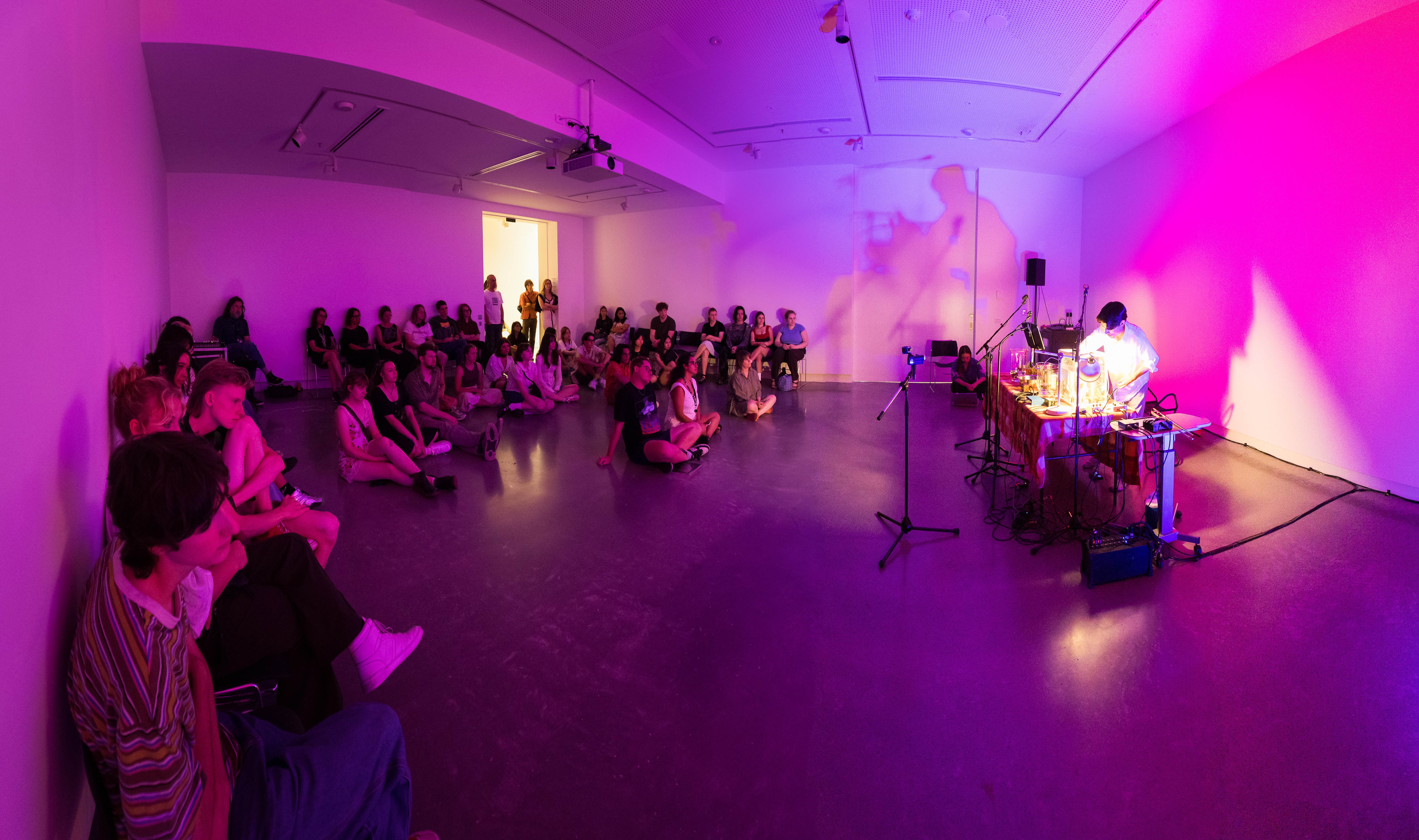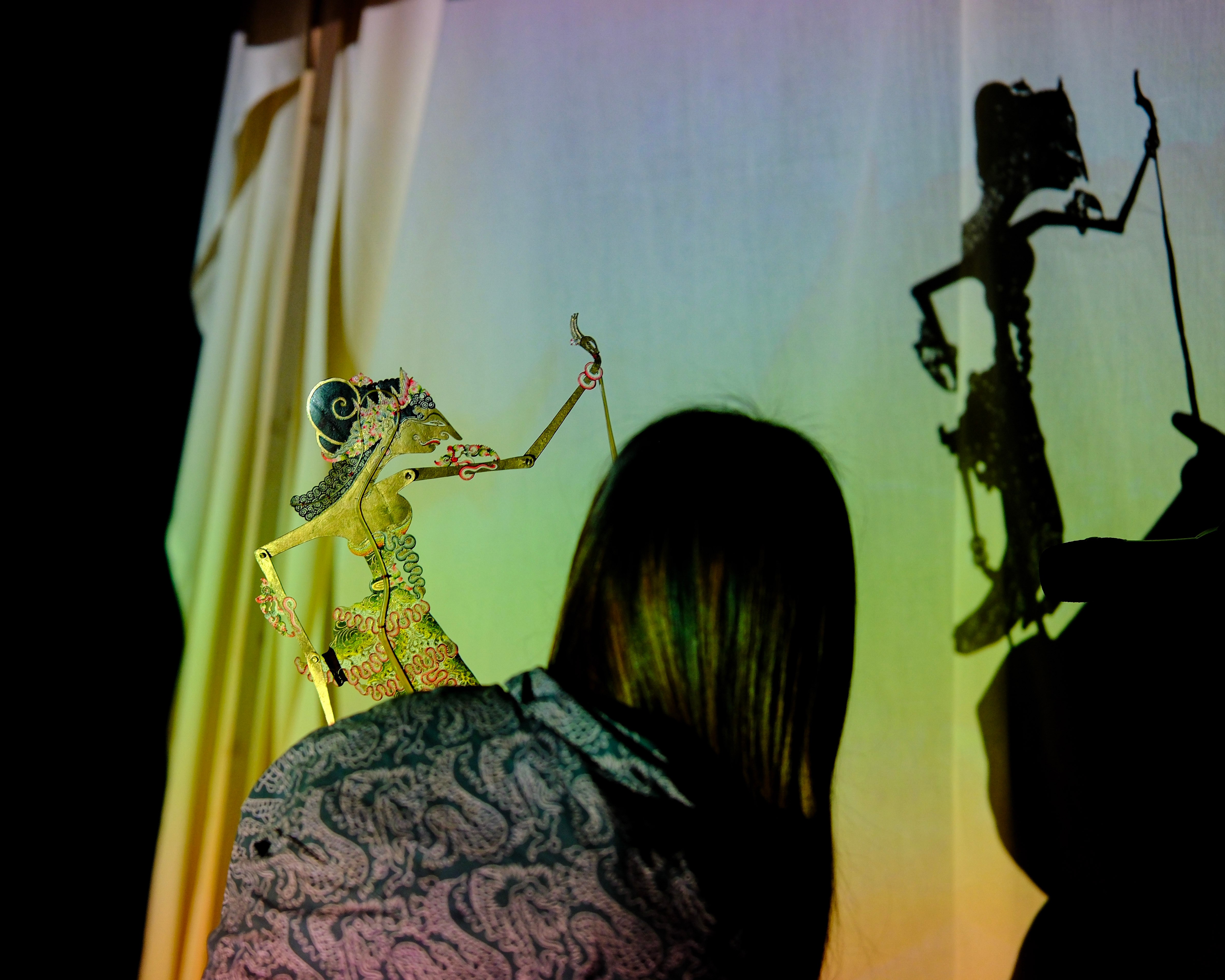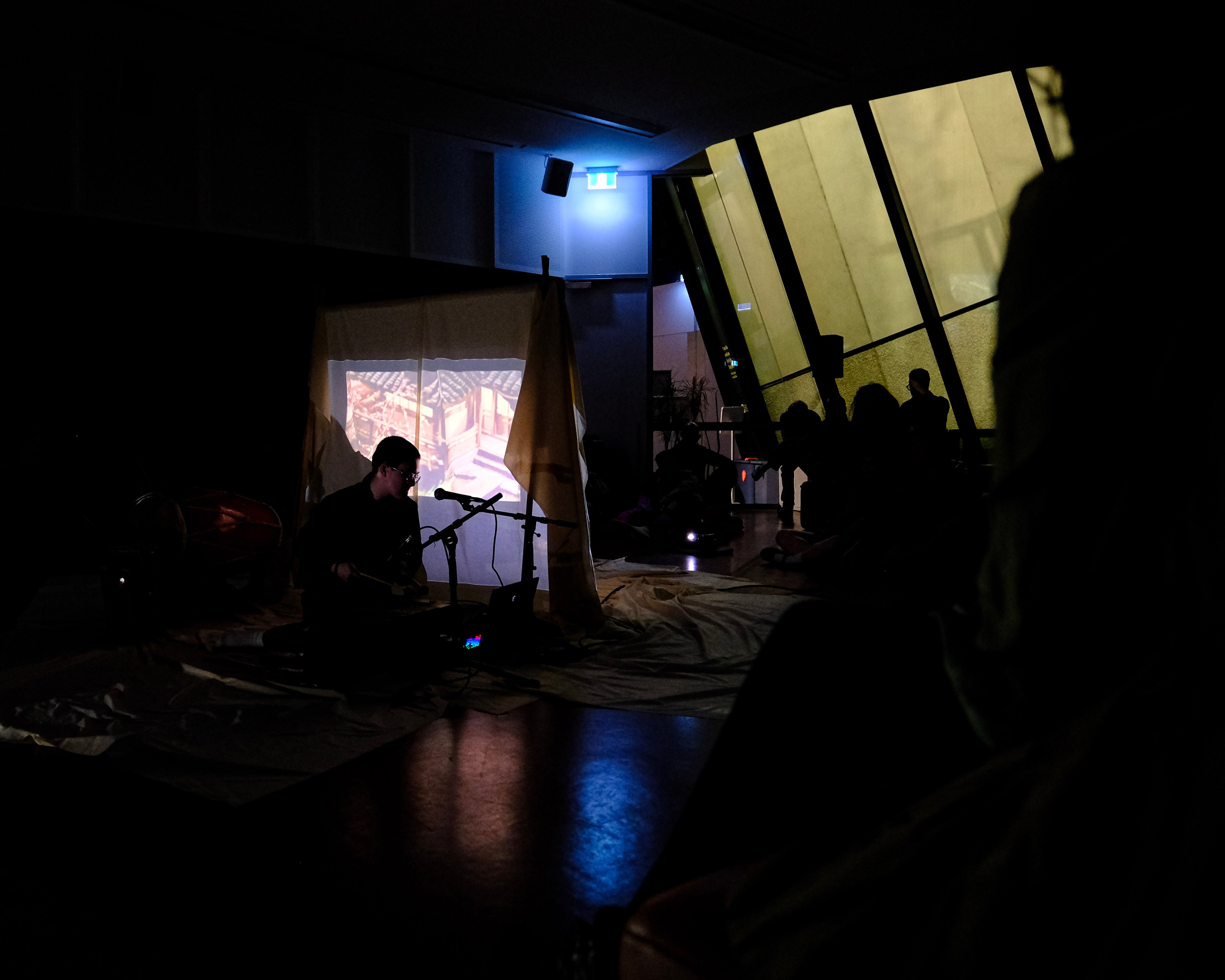INFO
| Name | Xiaole Zhan 詹小乐 (they/them) |
| Born | 2001 |
| Country of Birth | China |
| Place of Residence | Naarm Melbourne |
| Ethnicities | Chinese |
| Artform | Music, Literature |
| Decades Active | 2010s, 2020s |
ABOUT
Xiaole Zhan 詹小乐 is an award-winning writer and composer based in Naarm Melbourne, where they are currently completing postgraduate studies in Classical Music Composition. Their work features in AUP New Poets 11 (2025) and interrogates themes of colonialism, queerness, illness and memory. Through their polymathic art practice, they explore the sonorous relationship between language and music, and how these mediums are each rooted to the body. Other themes explored in their craft include race, culture, gender, ritual, translation, and the digital age.
Zhan has been writing since they were a child, primarily across creative non-fiction, poems and memoiristic essays. They were born in Shenzhen, China, and emigrated to Aotearoa New Zealand at the age of two, growing up in a Chinese-Pākehā family environment in Tāmaki Makaurau Auckland. It was such a given that they would keep writing for the rest of their life, they say, “that at first I didn’t want to be a writer because I thought it was too boring.”
Zhan grew up with music as well as writing, hearing melodies played by their Pākehā grandfather on an electric organ next door. They began playing the piano at age ten, the cello in their early teens and singing in a high-school choir before choosing to further their studies overseas at the University of Melbourne. Their introduction to music was situated in a context of racism and domestic abuse – cruelty mixed in with moments of kindness – and they are “processing the idea of how these really big social forces, such as colonisation in New Zealand and violence against Asians, influence family dynamics”. These themes appear to haunt their body of writing. In their essay ‘Muscle Memory’, winner of the Charles Brasch Young Writers Essay competition, they speak to gender discrimination through the blunt violence of definitions imposed by colonial tongues, how music shapes self-perception and how “the body cannot escape language as language cannot escape the body.” As reviewed in Poetry Shelf, “Xiaole’s essay is everything Lynley says and more – such a potent piquant sharp sensual question-raising idea-sustaining gender and body aware melodic exquisitely structured articulation and re-articulation on being. Xiaole is a writer to watch. They are more than that. They are a sign of the extraordinary range of voices emerging in this new generation”
The tools and forms the artist works in are chosen for their ability to translate emotional experiences into textures. Most often, this involves articulations of pain but also kindness and joy, tethered to a place of vulnerability and earnestness. In a Q&A with The Suburban Review, they write that “I’ve always thought of writing and music-making as continuous and interrelated. Poetry is a kind of sound art. Words as sonic units behave as music does… The way poetry moves through association and fluid internal logic is musical. I also think a lot about what Virginia Woolf wrote to Ethel Smyth while writing The Waves: ‘I am writing to a rhythm and not to a plot.’”
Zhan’s compositions involve a wide-ranging array of instruments: classical Western instruments like violins, cello, and vibraphone flow and collide with electronics and percussion, alongside the breath, singing, spoken word, recordings of nature and text. An example of this experimental multimedia approach is present in the score ‘Things That Feel Like People’, which was created as the 2024 Buxton Contemporary Gallery Composer in Residence. Centring the body of the performer and found objects as instruments, the score included the dripping of water, vases and bowls played with bowstrings and submerged speakers to create a fluidly associative landscape of noise. Their compositions have been debuted internationally by ensembles in Canada, Australia, Germany and London.
Influences for their writing include the work of Han Kang, Yiyun Li, Ocean Vuong, and more recently, Chinese-American poet Li-Young Lee, whose artistic philosophy speaks to the relationship between poetry, music and body as he describes poetry as “a musical score for the human voice” and how “all voice is possible because of the dying breath.”
Zhan has been involved in literary communities such as Starling and started a journal in their final year of high school, Parallax. They found their feet as an editor within student media, becoming involved with the University of Melbourne’s student journal Farrago and volunteering at Takahē as a copy editor. Currently, they work as a Junior Editor at Going Down Swinging, one of Australia’s longest-running literary magazines. Since moving to Naarm, they’ve continued finding community through writing, including Asian New Zealand writers living abroad, such as Grace Yee, Alison Wong, and romesh dissanayake.
Additionally, they work part-time across Naarm's interdisciplinary art galleries including at Science Gallery, Buxton Contemporary and Grainger Museum, which has also shaped their understanding of arts practices and contexts.
In future, they plan to head back to China to undertake deeper research into their maternal lineages, and are working on a long-form manuscript. They are keen to understand the position they occupy as a person working within the realm of classical music – the colonial hierarchies and histories inherent in the form but also how music-making can serve as sites of collectivism. This year they are starting a musical duo with their violinist friend May Zeng called DUSK MOUTH 名 that focuses on political storytelling through music.
When they were born, their mother went to a fortune-telling session to name them. Their name in Mandarin Chinese means ‘Little Happy’ but can also be read as ‘Little Music’. Zhan says, “I don’t know—I love words, and I love music, so I’ll try my best to hang around them both as much as I can."
LINKS
Artist CV — Xiaole Zhan 詹小乐
Online Portfolio — Xiaole Zhan 詹小乐
Interview — The Suburban Review
Interview on prose-poetry — LemonJu Zine
Press Release — ‘Xiaole Zhan wins 2023 Landfall Young Writers’ Essay Competition’
Key works / presentations
As a writer:
2025 — AUP New Poets 11 (Auckland University Press)
2024 — Think an Empty Room, Moonly with Phone Glow, Kill Your Darlings
2024 — Its bowl of red blooms out of sheer love of me, Island
2023 — Muscle Memory – The Spinoff
2021 — A Clear Dawn: New Asian Voices from Aotearoa New Zealand (Auckland University Press)
2019 — The Extinct (Phantom Feather Press)
2019 — Mammalian, National Schools Poetry Award
2019 — Woman, Sitting in a Garden, Sargeson Short Story Prize (Secondary Schools Division)
For a full list and links to poems, essays and criticism, refer here
As a composer:
2024 — 2024 EWF Program Launch Performance (Emerging Writers Festival)
2024 — Because the bombed cathedral is now a cathedral of trees (3MBS radio)
2024 — 疑是地上霜 (I thought the ground was covered in snow) (New North Commission)
2024 — Things that feel like people (Buxton Gallery Composer in Residence)
2024 — Travelling Movie Theatre Installation (Science Gallery, Now or Never Festival)
2023 — Cambrian (Prose-poem published in Going Down Swinging; musical setting premiered by Aditya Bhat at Hanson Dyer Hall)
2020 — 'speech having its way again, I gave a cry' (Commonwealth International Composition Award)
2019 — Aquatic Nocturne (Vancouver Chamber Choir)
For a full list of credits and compositions, refer here
Key awards
2024 — Kat Muscat Fellowship
2024 — Wheeler Centre Hot Desk Fellowship
2024 — Buxton Contemporary Art Gallery Composer in Residence
2024 — Admitted to the Tin House Winter Writers’ Workshop
2024 — Australian Art Orchestra Mentorship Recipient
2024 — New North Emerging Artist Recipient
2023 — Starling New Zealand Young Writers Festival Residency
2023 — Kill Your Darlings Non-Fiction Prize
2023 — Charles Brasch Young Writers Essay Competition First Place
2020 — Commonwealth International Composition Award
2019 — National Schools Poetry Award
2019 — First-Equal winner, Secondary Schools Division of the Sargeson Short Story Prize
2019 — ‘The Extinct’ Young NZ Writers Youth Laureate Editor's Choice
2019 — Winner of Vancouver Chamber Choir International Young Composers' Competition

